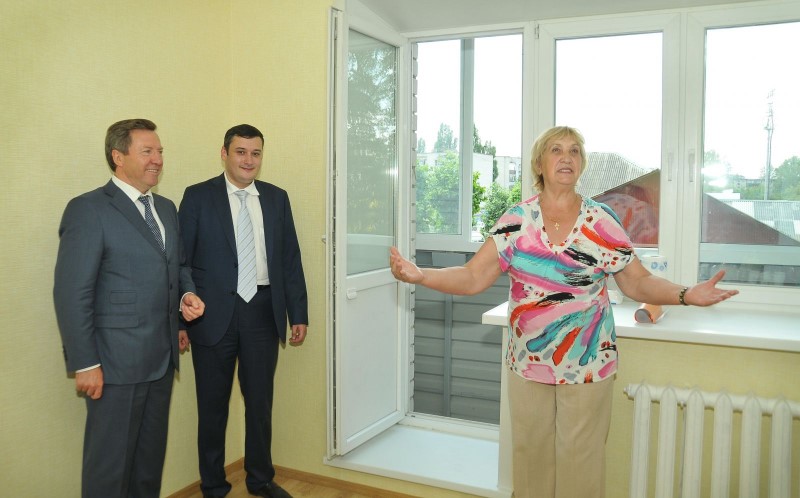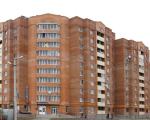2 main ways to get an apartment from the state for free
Not everyone can afford an apartment, even on credit. Especially the poor, who have enough current income only to purchase the most necessary. Given this, the state offers certain categories of citizens to purchase squares for themselves almost free of charge.
Dear readers! Our articles talk about typical ways to resolve legal issues, but each case is unique.
If you want to know how to solve exactly your problem - contact the online consultant form on the right or call +7 (499) 703-42-46. It's fast and free!
We are talking about obtaining an apartment under a social tenancy agreement with its subsequent. So, how can you still get an apartment for free from the state?
The housing rights of the poor are protected by Article 40 of the Constitution.
It says that citizens who do not have sufficient income for can receive housing free of charge from the state or municipal fund, or they should be given the opportunity to purchase "square meters" at an affordable price.
To implement this article, the state offers two programs:
- Providing an apartment for use by the applicant under contract . The tenant has no rights to it, but will be able to register everyone (within the limit established by the state in the form of 9 squares for each tenant). After some time, specified in the contract, he will be able to privatize the apartment, that is, get it in full ownership.
- Providing at the developer In this case, the state pays from 30 to 70% of the transaction.
Important: for families who need to improve their living conditions, there is one queue for both programs. The application must indicate which type of assistance is preferable.
How to get an apartment from the state? To receive an apartment for use under social security, you need to:
- the family belonged to the category of the poor;
- recognized as in need of better living conditions;
- all applicants were citizens of Russia and at least 5 years in their locality.
A lot of people fit these requirements, so the queues in the municipality for free housing are rather big.
Only two categories of applicants have the right to receive housing without a queue:
- living in dilapidated housing to be demolished;
- who are chronically ill (the list of diseases is established by the relevant Government Decree).
Who is considered indigent?
The status of the poor is given to those families in which income for each of its members is less than the subsistence minimum (specific amounts are set in the regions).
At the same time, it should be noted that for able-bodied, disabled and minor citizens, their own coefficients are established. If someone has an income slightly more than the minimum, then the family will not be recognized as poor.
Registration of the desired status takes place in the social security authorities. To do this, you need to collect documents:
- identification of applicants - passports, military IDs, birth certificates of children;
- a certificate of family composition (taken from the Housing Office, the Criminal Code or the FMS);
- certificate of conclusion (or dissolution) of marriage;
- certificate of income (or a certificate from the employment center on being registered);
- in the event of a divorce - a certificate of the amount of alimony received, or a certificate of non-payment of alimony (taken from bailiffs at the payer's place of residence).
The social security authorities are quite meticulous in analyzing the sources of family income and, if it is suspected that the applicants have not provided all sources of income, they may request additional documents. Therefore, it is better to bring everything at once.
Requirements for those in need of better living conditions
- residents of a house that is being demolished;
- forced to live in a room that is in an emergency condition or does not meet safety requirements;
- forced to live in or in premises that do not meet the sanitary standards of housing;
- living together with a patient whose co-existence poses a threat to the lives of others (the list of diseases is listed in the relevant Government Decree, these include mainly severe contagious diseases like tuberculosis);
- do not have their own housing;
- living in an apartment already provided under a social lease agreement, but its area is less than the minimum established by law (for example, a family received an apartment for two with an area of 20 square meters, but after the birth of a child, there was not enough space).
To obtain this status, you must collect passports and birth certificates of children and apply to the municipality with an application. After its consideration, a commission will leave at the indicated address, which will examine the housing and issue an appropriate decision.
To convince the commission, you can attach the necessary documents to the application, for example, a certificate of the patient's condition or an act of examining the home by an independent appraiser. But in most cases, the commission itself will examine everything and provide the applicant with the necessary papers.
Together with a copy of the act re-apply to the administration with all the documents. After the applicant will be registered, and he will only have to wait for his turn.
How to get a social contract?
When a suitable apartment becomes available, the applicant will be notified. If there are several apartments, then he will be able to choose, but if there is only one dwelling, then he will either have to agree or refuse.
In case of refusal, the applicant is “dropped out” of the queue, but retains the right to collect all documents and register again.
If the apartment is suitable, then the applicant will only have to conclude a social tenancy agreement, having previously collected certificates confirming the preservation of preferential status.
The contract should pay attention to the following points:
- Rules for using the premises. They should discuss what the hirer is entitled to. In addition to the right to reside, the right to temporary and permanent registration at the place of residence should be granted - without this, the tenant will not be able to register his family and relatives in the social apartment.
- Procedure for payment of utility services. As a rule, the tenant pays only a part of the “communal apartment”, what he directly uses: gas, electricity, water, garbage collection, territory cleaning, heating, intercom, elevator, etc. But general house expenses and overhaul are paid, as a rule, by the municipality. It is worth paying attention to the personal account numbers if several families live in the apartment. They should be different - each family pays only for itself.
- Tenure. Usually, apartments are given to social rent without a tenure period - that is, until the moment the current tenant moves out. But sometimes there is a specific figure. However, in this clause of the contract, something else is more important: after what time the tenant has the right to privatize the apartment provided to him. Usually it is 10-15 years.
- Terms of termination of the contract. As a rule, they mention the tenant's failure to fulfill his obligations to pay for housing, keep it in suitable sanitary conditions, etc. It is necessary to ensure that the terms of termination do not contain vague wording, but describe specific situations. That is, not “long delay in payment of utility bills”, but “non-payment of utility bills for 3 months”, etc.
How to privatize?
After the agreed period has passed, and there were no violations on the part of the tenant, he has the right to take ownership of the apartment.
At the same time, if the applicant has not previously privatized the property, he can do it for free, otherwise he will have to pay it (in fact, it is usually 15-20 times lower than the market value, but still significant).
For privatization you need:
- apply to the municipality with a statement;
- after consideration of the application, obtain permission for privatization;
- together with the necessary documents, apply to the branch of the registration chamber or to the “single window” of the Multifunctional Center;
- pay the state duty (1000 rubles) and, if necessary, the cadastral value of the dwelling;
- submit payment documents to the Regpalata;
- receive documents in accordance with the receipt.
For the Regpalat you will need:
- passports and birth certificates of all owners;
- permission for privatization from the administration;
- premises (if any);
- written refusal registered in the apartment, if he does not want to participate in privatization;
- a statement on behalf of a tenant who is registered but temporarily absent for an objective reason (for example, drafted into the army) to retain his right to a share in property;
- if they are not registered on the living space and, therefore, are not among those who privatize the apartment;
- certificate of family composition (sometimes require an extended extract);
- marital status documents;
- extract from the personal account (confirmation of the absence of rent debts).
How to get an apartment for free from the state? Watch the following video:






